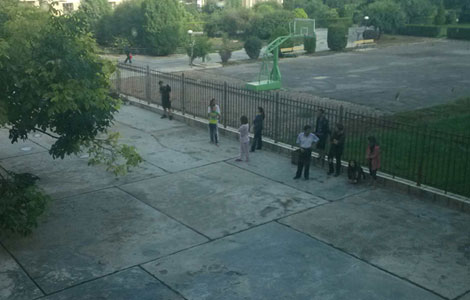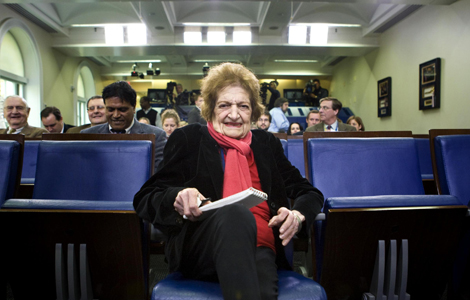Indonesian govt feels the heat as food prices soar
Updated: 2013-07-22 16:20
(www.asianewsnet.net/The Straits Times)
|
||||||||
Prices of chilli padi, the fiery-hot bird's eye chilli, and other key food items have shot up this month, and got many Indonesians hot under the collar.
Chilli padi, known in Indonesia as cabai rawit, costs as much as 100,000 rupiah (US$9.93) a kg in some markets, having doubled in price over the past month. That price could buy a kilo of beef.
The price of beef, already at record highs, has jumped by at least 25 per cent during this period.
Food price inflation, common during Ramadan, has always been a serious concern for the authorities. But this year, the record spike in prices could stoke dissatisfaction with the government ahead of the elections next year.
Bank Indonesia last week said it expects inflation to hit 7.2 per cent to 7.8 per cent this year.
Several factors were behind the recent price spikes, including an increase in the price of subsidised fuel in June and crop failures because of the extreme weather.
Also a factor were restrictions on certain foods in terms of the quantities that could be imported, which were aimed at protecting local produce and driving self-sufficiency.
The restrictions on beef were relaxed only recently to help bring prices down.
Bureaucrats now find themselves under greater pressure to boost supply and dampen prices ahead of Hari Raya on Aug 8.
On July 13, an angry President Susilo Bambang Yudhoyono chided the agriculture and trade ministers, as well as the chief of the national logistics agency (Bulog), for not having done enough to fix the situation.
"I can't be patient, just like the people can't," he said. "Have you seen the markets, heard what's on social media? Let me remind you, our leaders should have a sense of crisis, a sense of urgency, a sense of responsibility."
University of Indonesia economics lecturer Muslimin Anwar told The Straits Times the delay in getting import permits from the trade ministry was to blame.
"Bulog had already proposed this increase (in permits) three months ago, but they were issued just before Ramadan," he said, adding that prices should moderate after Hari Raya.
Several officials had anticipated the seasonal spike in demand, and had applied to import some 3,000 tonnes of beef from Australia. Bulog, which had hoped to bring in 800 tonnes of beef, was able to get only 8 tonnes in by air last Wednesday.
The agency was set up in 1967 to control the prices of staples such as rice, cooking oil and soya during the Suharto era, which ended in 1998. Its purview was confined to rice as part of reforms prompted by the 1997-98 Asian financial crisis. In recent years, its duties have expanded again amid crop and food price uncertainty.
State-owned Enterprises Minister Dahlan Iskan, who oversees Bulog, authorised it to charter an aircraft to bring in the beef on schedule given the dire price situation.
"There's no more time," he told reporters, noting that Bulog might make a loss but that losing money was far better than letting prices continue to rise.
In addition, some 9,000 tonnes of chilli padi will be imported from China and Vietnam.
Observers have blamed the government's haste in imposing import quotas in order to drive food self-sufficiency - ironically, officials had said the move would stabilise prices in the long run.
The authorities say more long-term strategies are needed to boost supply, especially with rising incomes driving up meat consumption. Indonesians ate some 480,000 tonnes of beef last year, or 2kg per person, up from 1.7kg per person in 2010.
Coordinating Economics Minister Hatta Rajasa told reporters the aim was to get beef prices down to 75,000 rupiah a kg by the end of the month, adding: "If demand stays high, we will import more."
The trade ministry has also organised bazaars where staples are sold at subsidised rates.
Nevertheless, buyers and sellers are not optimistic that prices will dip any time soon.
"People prefer fresh beef, especially for Hari Raya, and we predict prices could hit 120,000 rupiah a kg," said Une, 55, who goes by a single name and is a trader at a market.
Most Viewed
Editor's Picks

|

|

|

|

|

|
Today's Top News
Knife attack injures 4 in Beijing
Yuan gains 34% against USD in past 8 years
Live Report: 56 dead, over 400 injured in quake
Hard landing of China economy no topic at G20
US Navy drops bombs on Australia's reef
Woman jailed in Dubai after reporting rape
Guangdong to probe airport bomber's allegations
Police meets GSK representative after scandal
US Weekly

|

|














